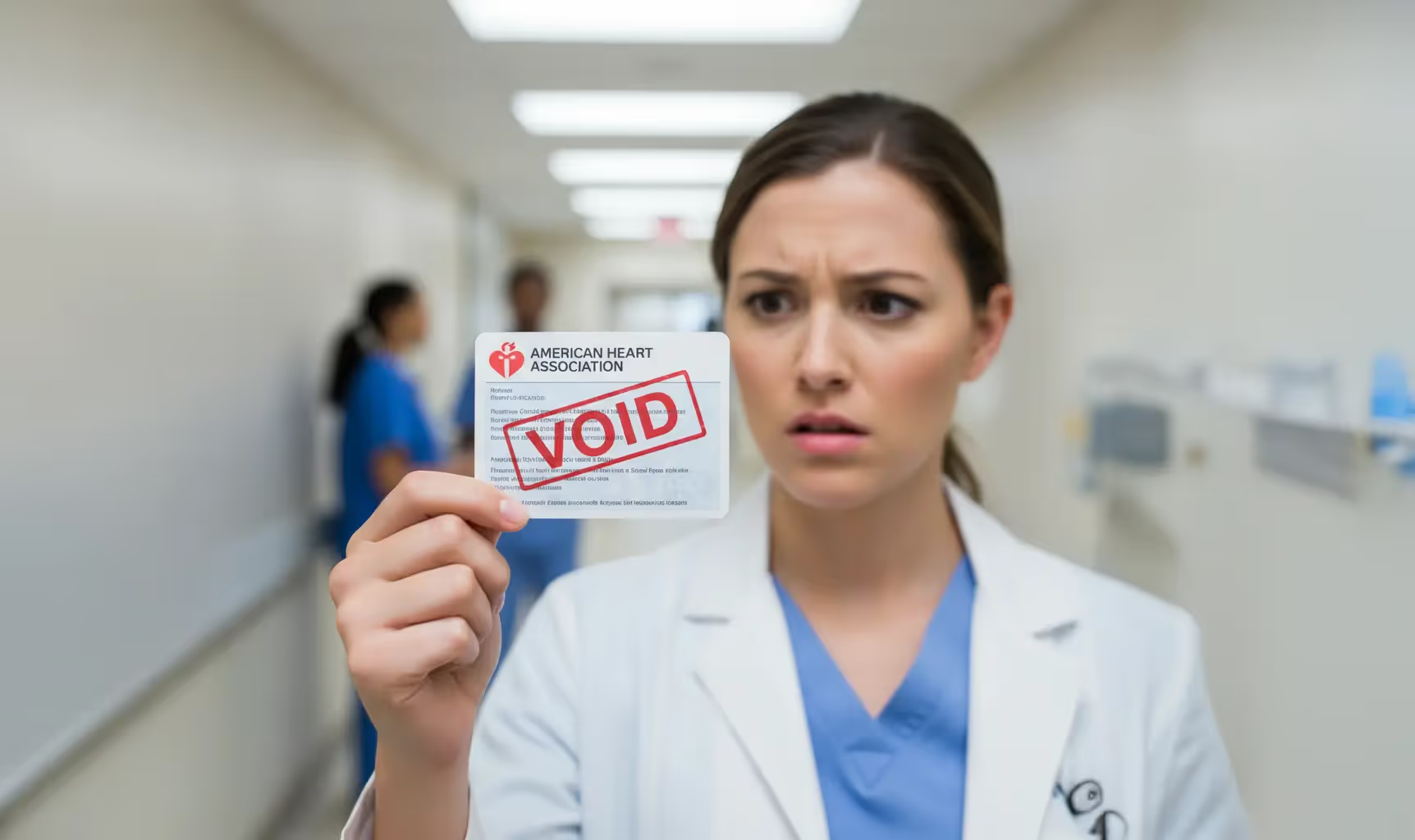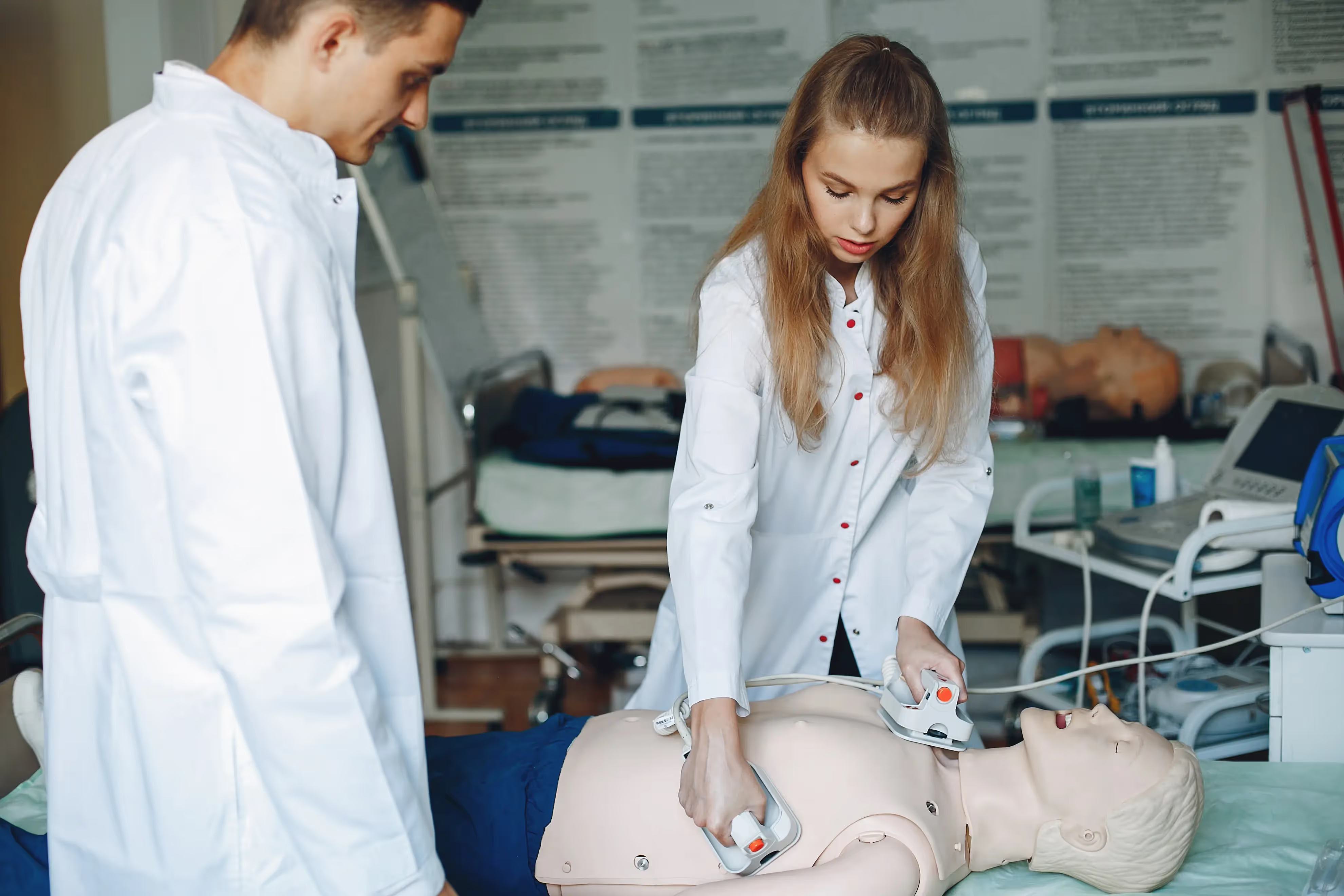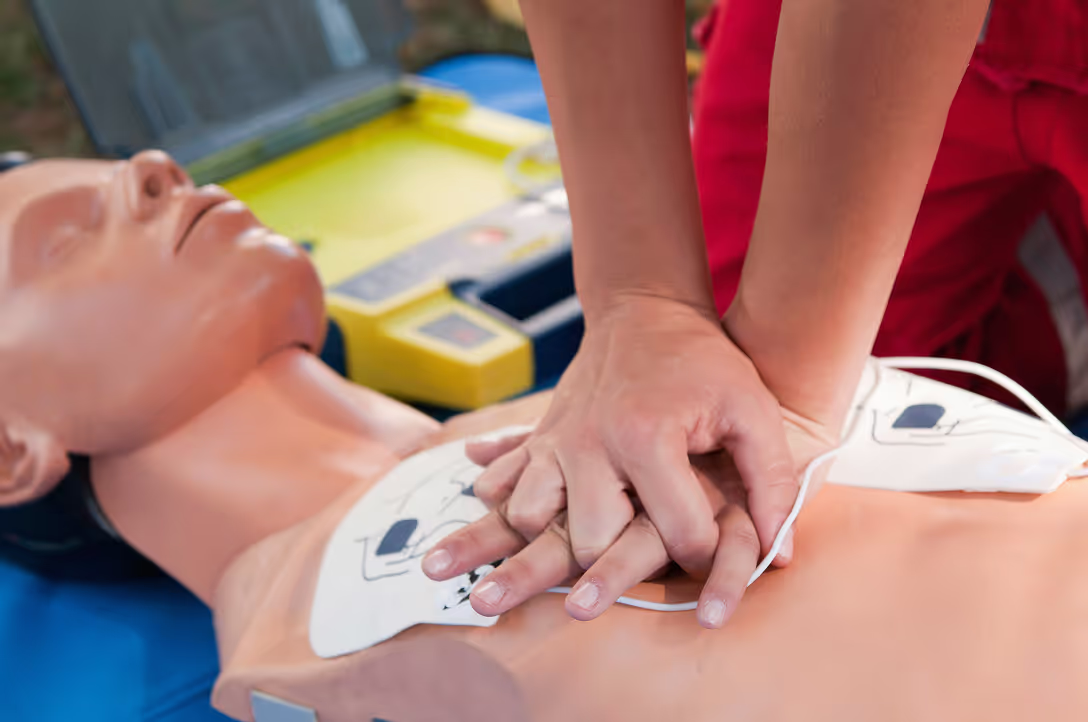In recent months, Texas has seen a troubling uptick in companies marketing fraudulent CPR and life-support certifications. What seems like a convenient shortcut is becoming a dangerous pitfall—for medical professionals, employers, and patients alike.
The New Trend: CPR “Courses” That Aren’t
Fraudulent CPR providers often prey on the high demand for life-saving credentials, especially in states like Texas where healthcare staffing is under pressure. Some red flags emerging in Texas:
- In Fort Bend County, authorities have warned about a company named Flex Medical Services issuing fake CPR cards. (KPRC)
- Scammers advertise ultra-short “15-minute” trainings, or upfront eCard issuance without any skills practice.
- Some providers accept cash, Zelle, or other nontraceable payments to evade accountability.
- Classes may be held in private homes, office conference rooms, or unverified locations that lack proper manikins or equipment.
These operations exploit confusion, urgency, and the complexity of verifying whether a course is truly American Heart Association (AHA)–authorized.
Why Texas is Vulnerable
Texas, like many states, has an ongoing demand for certified medical staff, first responders, and healthcare support personnel. When professionals have tight timelines to renew certifications, the temptation to choose “fast and cheap” increases. Unscrupulous providers capitalize on that pressure.
Furthermore, enforcement is challenging. The AHA must monitor thousands of training centers nationwide, and state/local authorities may lack resources or awareness to police fraudulent workshops until after harm is already done.
The Fallout: When Fraudulent Instructors Lose Their License
The consequences aren’t theoretical—AHA regularly revokes the authorization of instructors or training centers that violate standards. When that happens:
- Students’ certifications may be invalidated. Even if you completed the class in good faith, your card is tied to the legitimacy of the instructor or center.
- You may be disallowed from working. Hospitals, clinics, EMS, and licensing boards often require a valid AHA card. If yours is revoked, you might be suspended until you retake a valid course.
- You must retake the course from an authorized provider. There is no shortcut: only an AHA-approved training center can issue a legitimate certification.
For medical professionals, that means lost time, income, and credibility. Worse, in extreme cases, an employer might view participation in a fraudulent course as a breach of professional conduct or trust.
Signs You’re About to Be Scammed
To avoid falling victim, watch for these red flags—especially in Texas:
- Provider claims “AHA certified” but is not listed in the AHA Training Center network.
- The course is suspiciously short (e.g. 15–30 minutes) or only includes an online test, no hands-on practice.
- No manikins, no instructor feedback, or no verification of skills.
- Payment methods limited to cash, Zelle, or apps (i.e. no traceable credit card).
- The location is an apartment, private home, or lacks a professional facility.
- The provider refuses to share their AHA Training Center number, instructor credentials, or proof of affiliation.
- They only offer “instant eCards” without in-person or monitored skill checks.
If you see any of these, proceed with caution or back out entirely.
How to Safeguard Your Profession
- Always confirm the training center is in the official AHA Training Center directory.
- Ask the provider for their Training Center ID and instructor credentials; verify with the AHA if needed.
- Ensure the class includes hands-on practice with manikins, instructor evaluation, and meets duration standards for BLS, ACLS, PALS, etc.
- Use a payment method you can dispute (credit card) rather than cash or app payments.
- Avoid providers that push “fast, same-day, instant CPR certification” without rigorous training.
Texas Healthcare Workers: Don’t Gamble With Your Certification
The wave of fraudulent CPR companies in Texas is real—and its victims are often honest medical professionals who thought they were doing the right thing. But when an instructor or center is exposed and stripped of authorization, their students’ certificates vanish overnight.
If you or your institution rely on CPR credentials, double down on verification. The time and peace of mind you invest now could save you a lot more in the long run—and protect your ability to practice safely.
–
For the most efficient, accurate, simple, and guaranteed CPR courses, choose CPR Certification Labs for your AHA BLS, ACLS, and PALS certifications. Same day classes available in all our locations 7 days a week!
Tel: (877) 350-1559








